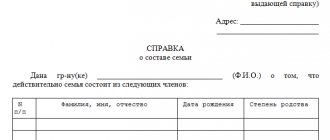What does the concept of “inheritance” mean?
An “inheritance” is considered to be property or rights that previously belonged to one person, but after his death must be transferred to the possession of his heirs. Acquired property is inherited on one of two grounds:
- according to the will drawn up by the deceased during his lifetime;
Nuances of drawing up and executing a will - legally, if the deceased did not have time to leave the document on the distribution of property.
Who has the right to inheritance by law
The testator himself has the right to transfer property to any persons, even those who are not his relatives. Heirs can be:
- legal entities and individuals;
- foreigners and Russians;
- state (if the heirs were not identified, or the deceased decided so).
Important! The will is drawn up by a notary in two copies. One remains in the custody of the notary himself, the other is issued to the testator.
In the case of a will, all property goes to the heirs listed in it according to the specified shares. In the absence of a document, the authorized bodies first search for possible heirs, and then distribute the entire property array between them according to:
- order of inheritance;
Order of succession by law - legal provisions;
- other reasons.
Although wills are drawn up during the life of the owner, it will be possible to find out the final conditions and the array of transferred property only after his death. Witnesses are present when the document is prepared, but they must not disclose the contents of the document until after death.
Who is interested in finding heirs by will and by law?
Inheritance is a rather lengthy process. The property of the deceased cannot remain owned by anyone - it will be received by the heirs, or it will become escheat and go to the state.
Successors who are not aware of their rights can declare entry into the inheritance many years after the death of the previous owner, and challenge the results of the division in court. They are given 3 years to do this from the moment they receive information about the death of the testator. If the court approves the petition, the new heirs are given 6 months to formalize their rights to the property.
If the inheritance is carried out according to a will, the recipient must prove his status by presenting:
- telegram;
- death certificate of the testator;
- letter from a notary;
- applicant's passport;
- documents indicating the presence of kinship or marriage ties with the deceased;
- other papers confirming that he is the legal heir.
If contact with the legal recipients of property is lost, the search is carried out with the help of the media.
Independent search for heirs
Sometimes the greed of some heirs can prevail over common sense.
They will decide that there is no need to report other heirs to the notary, and they themselves do not need to report the death of the testator - they will get a larger share.
USEFUL INFORMATION: Purpose of payment when transferring alimony
Sometimes it even gets to the point where the heirs deliberately distort information, mislead other heirs and the notary himself, and all in order to prevent other persons from accessing the inheritance, to which their hands are already reaching out so much.
However, such behavior may result in this cunning person ending up without an inheritance altogether. According to Article 1117 of the Civil Code of the Russian Federation, such heirs may be considered unworthy and excluded from the inheritance.
But the opposite situation also happens, when some heirs look for others so that they can equally accept their share of the inheritance. This behavior of people is dictated not only by high moral qualities, but also by a purely legal meaning.
The situations can be very different.
When you are one of the contenders for an inheritance
For example, the testator had two sons - one lived with his father, and the second lived somewhere abroad. The brothers had a very cool relationship, and they didn’t even communicate with each other; the son who left had also quarreled with his father a long time ago.
So, the father dies and leaves a house as an inheritance. The son who lived with him draws up all the documents, enters into the inheritance, and does not tell his brother anything. The house becomes the property of one son, and the second learns that his father died only a year later.
Naturally, the second son is shocked. But not because he lost his father, but because his inheritance was omitted. He goes to court, reports that he did not know and could not know about the opening of the inheritance, the court restores the period for his entry into the inheritance and cancels the certificate previously issued by the notary, prescribing to the court decision that the house is to be inherited as shared ownership by ½ each.
If the first son had already managed to dispose of the property by selling it, he would have to return half of the money received.
In order to avoid such situations, it is better to immediately ensure that all potential heirs are notified of the death of the testator.
Of course, if in this case there was a will, and the father wrote everything to the first son, then the second would not have to count on anything (except if he was disabled and would receive the right to a compulsory share). But when inheriting by law, exactly this can happen, as described above.
When you are a property buyer
The buyer of real estate also bears certain risks if he buys an apartment immediately after it is transferred to the seller by inheritance.
Of course, the buyer, as a bona fide purchaser, will not be deprived of his apartment - the seller will pay monetary compensation to the new heirs, but there are serious risks that the deal will “fall through” at the very moment of settlement.
Appearing heirs who have gone to court can obtain the seizure of real estate, which is an inherited estate, and then it will no longer be possible to carry out civil transactions with it.
If the buyer was counting on this particular property, then he will have to “replay” the whole situation and look for some other options for acquisition.
The inheritance procedure differs in the procedure established by law. A person must contact a notary within the prescribed period (6 months) and receive a certificate. However, in practice everything is not so simple. When a testator dies, his close relatives may simply not know about this fact. Accordingly, they do not enter into rights at the appointed time. The deadlines have to be restored through the courts. Many, in such a situation, ask the question: is it possible to show to a notary that he did not search for heirs in Russia? Let's try to consider the duties of notaries, as well as the procedure for dealing with “lost” heirs.
Search for heirs
Potential successors may not be aware that:
- the testator died;
- they were specified in the will.
Read also: Recognition as missing
The time frame for registering an inheritance is limited by law. Having received an application for inheritance, the notary will open an inheritance case and close it after 6 months. During this period, all persons who are entitled to receive part of the property must submit their applications.
Established deadlines for accepting an inheritance
On a note! An application for inheritance should be submitted at the last place of residence of the deceased.
When notified of inheritance under a will, the recipient should go to a notary. No later than 15 days from the date of death, the notary is obliged to make an appointment with the heir, after visiting which he will learn about the terms of the will in the presence of two witnesses.
To enter into an inheritance, you will need to submit a letter (by putting your signature on it) to the notary who opened the case.
Attention! Registration of inherited property is a paid service. The cost starts at an average of 2,000 rubles.
Search by notary for heirs
A notary can inform about the right to property to people specified in the will or claiming property by law.
He retains the opportunity to publish a notice in the media to increase the chances that a legal heir will be found. This method is suitable in cases where the addresses of legal successors are unknown. But the notary is not obliged to check whether the testator has passed away. Law enforcement agencies and registry offices do not transmit data on the death of citizens to notary offices. He can only learn about this from applicants for the property.
Please note that notaries rarely search for potential heirs for free.
Searching for heirs via the Internet
Since 2021, heirs have been searched for on the official FNP portal. They publish information about deceased owners and open inheritance cases.
The online notary service simplifies the procedure for finding heirs. All inheritance processes opened by notaries throughout the country are uploaded here.
Go to the “Register of Inheritance Cases”
To find a case, you must provide information about the deceased testator:
- FULL NAME.;
- date of birth;
- date of death.
Enter the required data
Next, the system will open data about the notary with whom the case was opened.
Oddly enough, the search for potential heirs can also be carried out on social networks. This will help establish contact with the applicant for the property if the data from his page is known.
Search for heirs by heirs
Since 6 months are allotted for searching for heirs and registering rights to the property of the deceased, the applicants themselves are primarily interested in finding them.
The sooner the procedure is completed, the sooner he will become the owner of the property. Another reason for assistance in the search is punishment for withholding information about potential heirs. If the applicant did not inform the notary about the possible recipients of the property, then, according to Art. 1117 of the Civil Code, such a person may be recognized as unworthy, deprived of rights to the proper property.
Important! Regardless of how other heirs were found, to confirm their rights they must submit an application to the notary who opened the inheritance case.
Article 1117 of the Civil Code of the Russian Federation “Unworthy heirs”
Search for heirs by the buyer of real estate
The purchaser of an object must make sure in advance that the seller has obtained the rights to it legally.
In the case of inheritance, the risk lies in the possibility of the emergence of new heirs who have the right to sue even the sold property. Read also: Testamentary assignment
Since the basis for registration of property rights by the seller is the results of inheritance, you should review the inheritance file in advance.
All information about the property of the deceased is uploaded into a unified notary information system and stored in the electronic register of wills. In turn, online banking services allow you to view data on the accounts and deposits of the deceased.
What will happen to the inheritance if relatives could not be found?
The notary should not look for heirs on his own, so if potential candidates for the property of a deceased citizen do not apply for registration of property (inheritance) in a timely manner, they may lose it altogether.
Each applicant is given exactly six months to enter into inheritance. This period is quite enough to register movable and immovable property in your name. In some cases, if a person did not know about the death of a relative, he may request that the period be extended.
In such a situation, the potential heir will have more time to formalize the inheritance. If no one applies for registration of the property of the deceased citizen within six months, then the inheritance becomes escheat and goes to the state. It will be impossible to return it in the future.
You need to remember this. Due to various life circumstances, it is not always possible to find a close relative of the deceased, so it is recommended to maintain relationships and communication with family and friends. This will allow you to be aware of the main life events of your loved ones.
After the expiration of the six-month period given for registering the property of the deceased, the heirs can still file a claim, indicating:
- right to inheritance;
- the reason for untimely treatment in the distribution of property;
- inherited property and its total value;
- list of remaining heirs.
Relatives can file a petition to suspend the inheritance case. If the court decides positively, the heirs can receive their share of the inheritance, even if it has already been declared escheat.
Legal experts recommend contacting notaries in a timely manner after the death of a close relative, so as not to miss your chance to inherit an apartment, car or private house. After all, if there are no heirs, the property is considered escheated and goes to the state.
It should also be noted that if at the time of the legal heir’s application the property has already been sold, then the potential candidate for the property of the deceased will receive a refund in the form of a sum of money. Its volume will be equal to the sale price of the inheritance due
In any case, you should not delay the process of contacting a notary office. The sooner a person enters into an inheritance, the less he will have to worry about the fact that he may not have time to register the property of the deceased.
USEFUL INFORMATION: Is it possible to laminate a marriage certificate?
How to search for the testator's property
The process of searching for property subject to inheritance is enshrined in Art. 72 Federal Law “On Notaries”. The notary is obliged to check the composition of the estate and the location of all property.
But he must search only for the property that is located on the territory of the testator. All other property must be found by the heirs.
To search, interested parties can contact special registries where property rights are secured. For example, information about the property and vehicles owned by the deceased can be found in Rosreestr and the State Traffic Safety Inspectorate.
The search is also given 6 months. If, after the designated period, new, previously unknown property of the deceased is discovered, then it will have to be divided in court.
“Fundamentals of the legislation of the Russian Federation on notaries” (approved by the Supreme Court of the Russian Federation on February 11, 1993 N 4462-1)
What is the procedure for searching for heirs?
The notary chooses the method of informing known heirs independently. As a rule, letters are sent by mail with a request to visit the office to write an application for acceptance of the inheritance or refusal of it.
USEFUL INFORMATION: Moment of termination of marriage upon divorce
According to Article 61 of the Fundamentals, publication in the media or public notice is also allowed, although in practice this method of information is used extremely rarely.
In many ways, the method that the notary chooses to inform will depend on the completeness of the information that he has about a particular heir.
What will happen, or will none of the heirs contact the notary?
Perhaps a person had only one heir, and he adopted him after the fact. In this case, such an heir may not contact the notary at all. However, this is fraught with some difficulties in the future. Without a title document for inheritance, it will be impossible to re-register real estate or transport in your name. If you miss the six-month deadline, then you will have to go to court to confirm the fact of the actual acceptance of the inheritance by a court decision.
There are cases when a person has no heirs in principle, or all of them were declared unworthy or refused the inheritance.
In this case, the inherited property is recognized as escheated and becomes the property of the municipality (real estate) and the Russian Federation (other property).
When property has passed into state or municipal ownership, it is possible that some heirs may appear who previously did not know that the testator had died. It will be possible to reclaim the property only in court.
This process is not easy, and it is unlikely to be possible without qualified legal support.
Is a notary obliged to search for a claimant for an inheritance?
The notary has the right to look for heirs:
- personally;
- with the help of other famous heirs.
- through the media.
The notary should not start searching for potential heirs on his own. This is not his direct responsibility - he can do this of his own free will.
His duties and capabilities are limited to notifying the heirs, and only those who are known to him.
Moreover, its main task is to send a notification. He does not have to make sure that it reaches the recipient.
What data is used to search by a notary?
It is impossible to find the recipient of the property just by name. To search and alert you need:
- FULL NAME.;
- Contact details;
- place of work;
- residential address.
So, there are traditional and remote methods of searching for heirs. Regardless of who is looking for and who gets the property of the deceased, the main purpose of the search is to resolve the issue of registration of ownership. If you have a will, it is not only easier to find heirs, but also to distribute property between them.







